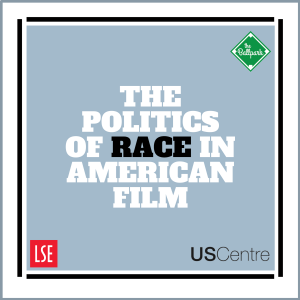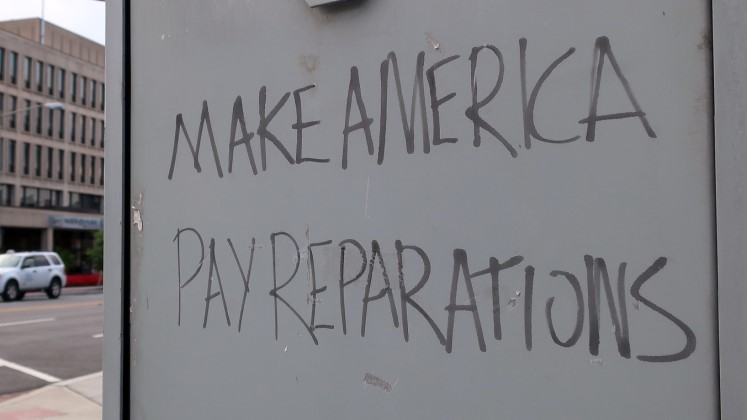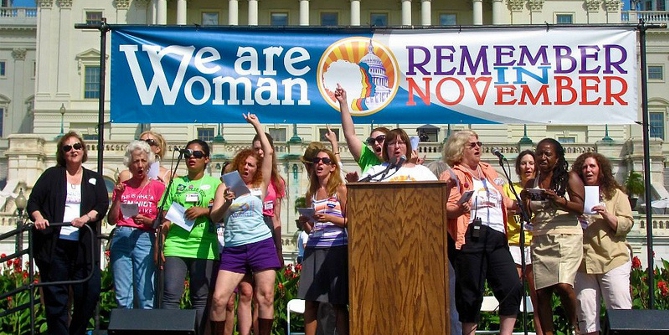 The LSE US Centre is excited to introduce our new podcast series, The Politics of Race in American Film, now available on Apple Podcasts, SoundCloud, Spotify and the LSE Player. Hosted by Dr. Clive James Nwonka, over five episodes this podcast will explore what makes film such a powerful lens for understanding race, politics & society.
The LSE US Centre is excited to introduce our new podcast series, The Politics of Race in American Film, now available on Apple Podcasts, SoundCloud, Spotify and the LSE Player. Hosted by Dr. Clive James Nwonka, over five episodes this podcast will explore what makes film such a powerful lens for understanding race, politics & society.
In Episode 1, “The Politics of Race in American Film”, Dr. Nwonka outlines the history & research that has shaped this series – from his own love of cinema as a child growing up in London to his career as an academic at the LSE. Dr. Nwonka then welcomes our first guest, Dr. Sam Mejias, to discuss the films that shaped their early ideas about race, how film influences people’s perceptions about the Black experience in America, and how depictions of Black life in America have changed over time.
Upcoming episodes of The Politics of Race in American Film podcast will look at the intersection of architecture and race through the films The Last Black Man in San Francisco and Paterson, and race and class through The Florida Project and American Honey.
How to listen
With a new episode released every two weeks, The Politics of Race in American Film is available on Spotify, SoundCloud, Apple Podcasts, the LSE Player, and more. We hope you’ll listen and subscribe to our new podcast and promote it to your networks. We’d love to hear your feedback on the podcast too – you can respond to this email with your comments or join the conversation about the podcast on Twitter with the hashtag, #LSEUSRaceFilm.
Listen to Episode 1 on Soundcloud
We’d love to hear what you think – you can send us a message on Twitter @LSE_US, or email us at uscentre@lse.ac.uk._
The Politics of Race in American Film podcast is hosted by Dr Clive James Nwonka, produced by Michaela Herrmann and Chris Gilson (LSE US Centre) with contributions from Dr Sam Mejias (The New School). This podcast series is supported by the LSE HEIF fund.
Featured image: Photo by Matt Botsford on Unsplash
Note: This podcast gives the views of the interviews and co-hosts, and is not the position of USAPP – American Politics and Policy, the LSE US Centre, nor the London School of Economics.
Shortened URL for this post: https://bit.ly/3dMtfDV






